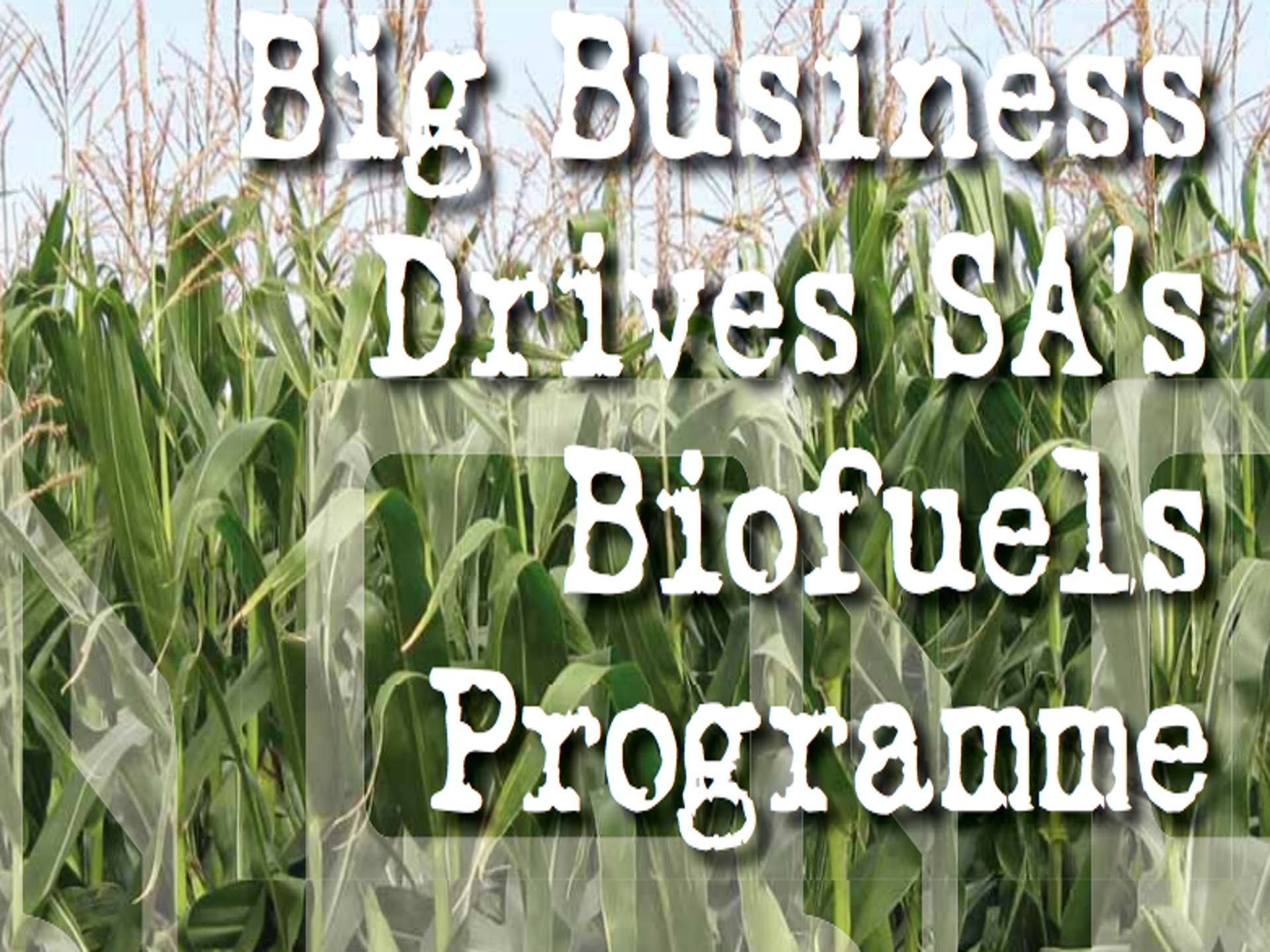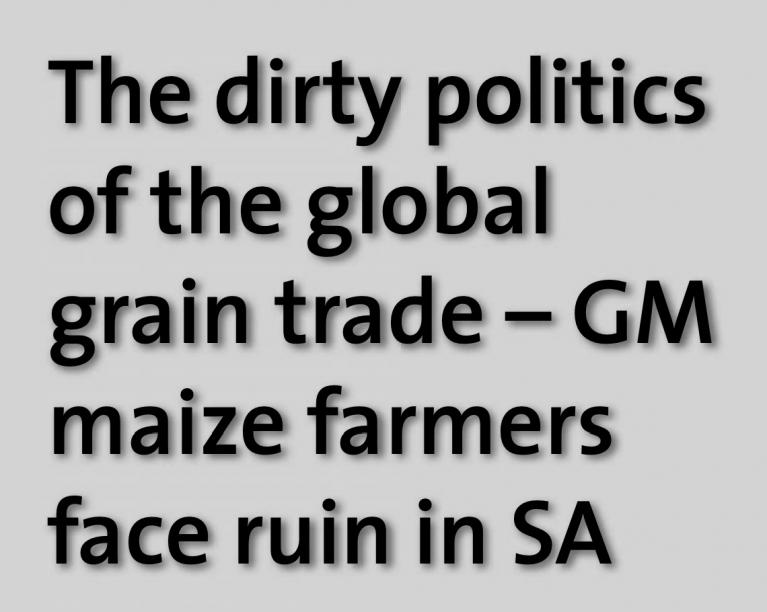Latest Resources

10 September 2012
GMOs have made no impact on food security in South Africa in fourteen years. ACB responds to DA p...
On the 5th of September 2012 James Wilmot, Democratic Alliance MP and Shadow Minister of Trade and Industry, issued a press release claiming that poor consumers cannot benefit from the “cost savings offered by GMOs” because genetically modified (GM) foods cannot be labelled. He claimed that labelling could not be implemented without a testing facility […]

16 May 2012
South Africa’s Seed Systems: Challenges for food sovereignty
The African Centre for Biosafety and Trust for Community Outreach and Education, have the pleasure of sharing with you, our new study, which provides an overview of the structure of the seed system in South Africa, the types of seed in use and their pros and cons, the legislative and policy environment, and the role […]

15 May 2012
Big Business Drives SA’s Biofuels Programme
In late February 2012 leading figures from the fossil fuel industry met in Pretoria to forge ahead with the government’s highly controversial plans for an SA biofuels industry. The catalyst for this meeting was the publication by the government last September of draft regulations for the mandatory blending of biofuels in the nation’s fuel supply. […]

9 January 2012
ACB comments on biofuels mandatory blending
The African Centre for Biodiversity hereby lodges its objections and comments to the draft regulations regarding the mandatory blending of biofuels with petrol and diesel. Read here.

9 May 2011
Critique of SANBI’s Studies on Monsanto’s MON 810
During early in 2011, the South African National Biodiversity Institute (SANBI) published a report titled, Monitoring the Environmental Impacts of GM Maize in South Africa. The report was a culmination of a study by the Environmental Biosafety Cooperation Project (EBCP) aimed at developing a framework for monitoring of insect resistant maize, Mon810, belonging to Monsanto. […]

8 December 2010
Competition Commission rejects Pioneer Hi Bred seed takeover
Media Advisory from the African Centre for Biosafety Johannesburg, 8th December 2010. The African Centre for Biosafety applauds the decision of the Competition Commission not to approve the take-over of Pannar Seed, South Africa’s largest seed company, by the multinational corporation and seed giant, Pioneer Hi-Bred, a subsidiary of the DuPont chemical company. The ACB […]

3 December 2010
Deep concern: Patel’S New Growth Path (NGP) supports Green Revolution for smallholder farme...
Dear friends and colleagues, The ACB is deeply disturbed and disappointed that Minister Patel’s NGP has not embraced new thinking on agriculture policy which requires breaking from a wholly inequitable and ecologically unsustainable chemical-dependent system. The NGP lacks vision as it has missed an important moment to move South Africa towards systems that reconnect food […]

8 September 2010
The dirty politics of the global grain trade – GM maize farmers face ruin in SA
Recently, the South African press reported on the possible bankruptcy faced by maize farmers. The African Centre for Biosafety (ACB) has today released a new report titled “The dirty politics of the global grain trade – GM maize farmers face ruin in SA” which provides an analysis of why South Africa’s record 13 million ton […]

13 August 2010
GM Sorghum: Africa’s Golden Rice
In this paper, we critically analyse the African Biofortified Sorghum (ABS) project, a GM ‘poster project’ in Africa. We dig beneath the veneer of the project being an “African led solution” to poverty and malnutrition on the continent. We also focus attention on the myriad of sorghum research initiatives currently underway in Africa, using both […]

12 May 2010
Traceability, segregation and labelling of genetically modified products in South Africa: A Posit...
South Africa has promulgated national legislation, the Consumer Protection Act (CPA), which creates an opportunity for the mandatory labelling of certain foodstuffs containing or which are genetically-modified organisms (GMOs). The Act sets out a number of consumer rights that have relevance to the sale of products with genetically modified components. These include the right to […]
